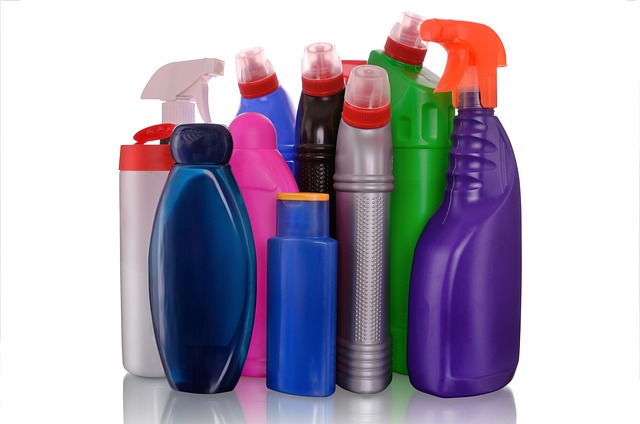
-
The Bureau of Customs is implementing safeguard duty on imports of high-density polyethylene pellets and granules for the second year
-
The safeguard duty of P1,271 per metric ton was incorporated in BOC’s Electronic-to-Mobile System on January 11
-
The imposition of safeguard duty is in compliance with Department of Trade and Industry Department Administrative Order No. 22-13, which orders the imposition of definite safeguard duty on the HDPE pellets and granules from various countries for three years to prevent serious injury to the local HDPE industry
The Bureau of Customs (BOC) is implementing the safeguard duty on imports of high-density polyethylene (HDPE) pellets and granules for the second year.
BOC Management Information System and Technology Group (MISTG) officer-in-charge deputy commissioner Kriden Balgomera, in MISTG Memo No. 03-2024 dated January 10, said the definitive safeguard duty on the importation of HDPE pellets and granules in the amount of P1,271 per metric ton (MT) for the second year was adopted in BOC’s Electronic-to-Mobile (E2M) System on January 11.
This is in accordance with Customs Memorandum Circular (CMC) No. 172-2022, which circularized Department of Trade and Industry (DTI) Department Administrative Order (DAO) No. 22-13.
DAO 22-13, dated September 30, 2022, orders the imposition of safeguard duty on the HDPE pellets and granules for three years to prevent the serious injury to the local HDPE industry. DAO 22-13 took effect upon the issuance BOC Customs Memorandum Order (CMO) 02-2023 dated January 11, 2023.
The safeguard duty of P1,338 per MT for the first year was incorporated in BOC’s E2M System on December 17, 2022.
The safeguard duty will be reduced to P1,208 per MT in the third year of implementation.
The duty should be applied to HDPE classified under Association of Southeast Asian Nations Harmonized Tariff Nomenclature (AHTN) 2017 Code 3901.20.00.
HDPE is used to produce plastic bottles, corrosion-resistant piping, geomembranes and plastic lumber.
Imports of HDPE originating from developing countries listed under DAO 22-13 will not be subject to the definitive safeguard measure.
The definitive safeguard measure excludes polyethylene (PE) wax, ethylene acrylic acid copolymer, polypropylene, low-density polyethylene, and polyethylene terephthalate resin.
Imported HDPE grades specially made for use in the manufacture of wire and cable jackets/coatings will likewise be excluded from the definitive safeguard measure. DAO 22-13 noted that the domestic PE industry currently does not produce HDPE grades that can used by the wire and cable industry. Also, HDPE used in rotational molding process application that are generally in powder form with a particle size of 500 microns or below, a melt index of 4.0 gram/10 minutes, and a density of 0.93-0.94 grams/cm3, will also be excluded from the measure as the domestic PE industry does not produce such products.
Importers of HDPE originating from a country that is exempt from the safeguard duty and those not covered by preferential tariffs should submit a Certificate of Country of Origin issued by the authorized agency/office in the source country of manufacture, subject to affixation of “Apostille” to the document or authenticated by the Philippine Embassy/Consulate General, as applicable.
DAO 22-13 is pursuant to the recommendation of the Tariff Commission (TC) after its formal investigation found that “there exists an imminent threat of serious injury and significant overall impairment to the position of the domestic HDPE industry in the near future.”
It said this is shown by the significant increase in HDPE importations in 2021, “pointing to a high likelihood that substantially increased imports will continue into the near future.” It said there is also a high likelihood of higher exports of HDPEs to the country in the near future, as top suppliers of the product such as Malaysia, Thailand, Singapore, and Indonesia are diverting from their primary export markets and with the Philippines being an important alternative market.
TC also noted that there was “significant deterioration in the overall position of the domestic HDPE market during the period of import surge”, adding that the increase in imports in the first half of 2021 was “recent, sudden, sharp, and significant enough.”
“Serious injury to the domestic HDPE industry would occur imminently if a definitive safeguard measure against importations of HDPE is not applied,” TC said.
The commission said that for the local industry to adequately supply domestic requirements, it needs a level playing field to compete with imports and allow the local industry’s manufacturing base and sales to expand and generate more jobs for Filipinos.
TC added that users of HDPE pellets and granules will retain their option to choose between local and imported products since imports will still be allowed. The imposition of safeguard measure is also “not expected to cause shortage” of the products covered in the domestic market.
DTI in September 2021 submitted to TC a request for a formal investigation to determine the merits of imposing a definitive safeguard measure on importations of HDPE pellets and granules from various countries after its preliminary investigation found that “a causal link exists between increased imports of the products under consideration and serious injury to the domestic industry.” DTI is mandated by Republic Act No. 8800 (the Safeguard Measures Act) to protect the domestic industry from serious injury caused by a surge in imports.
The review came after JG Summit Petrochemical Corp.—now JG Summit Olefins Corporation (JGSOC) after a merger between the two with the latter as the surviving company—in 2020 alleged that “serious injury to the domestic industry was caused by the increased volume of HDPE.
JGSOC accounts for a 100% share of the total domestic production of HDPE. – Roumina Pablo




